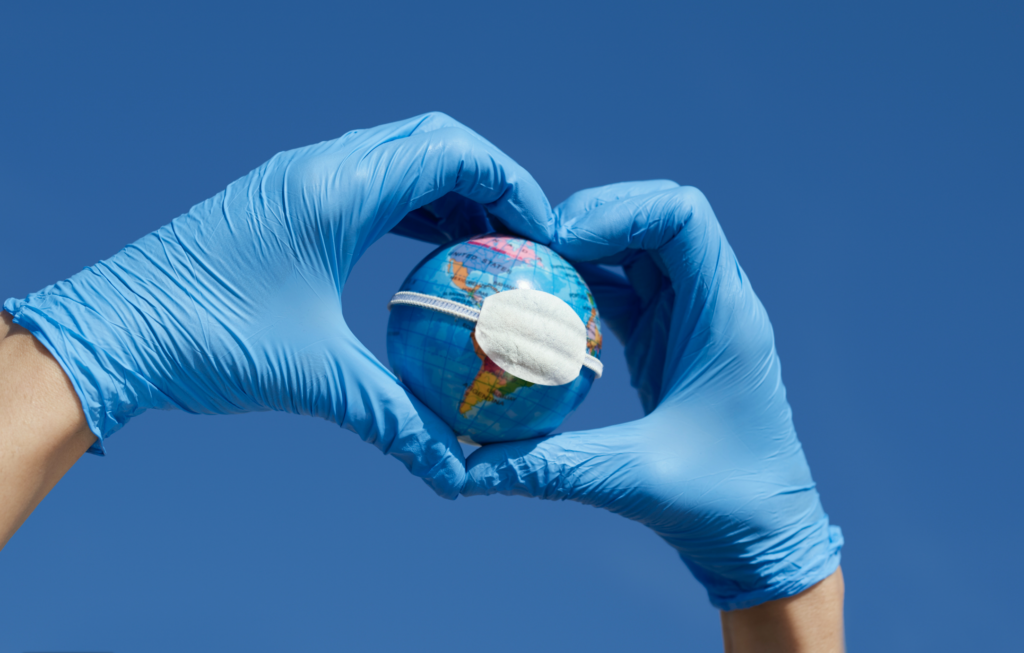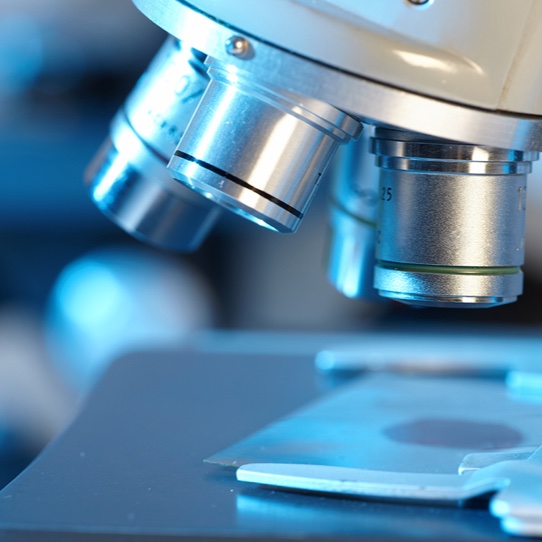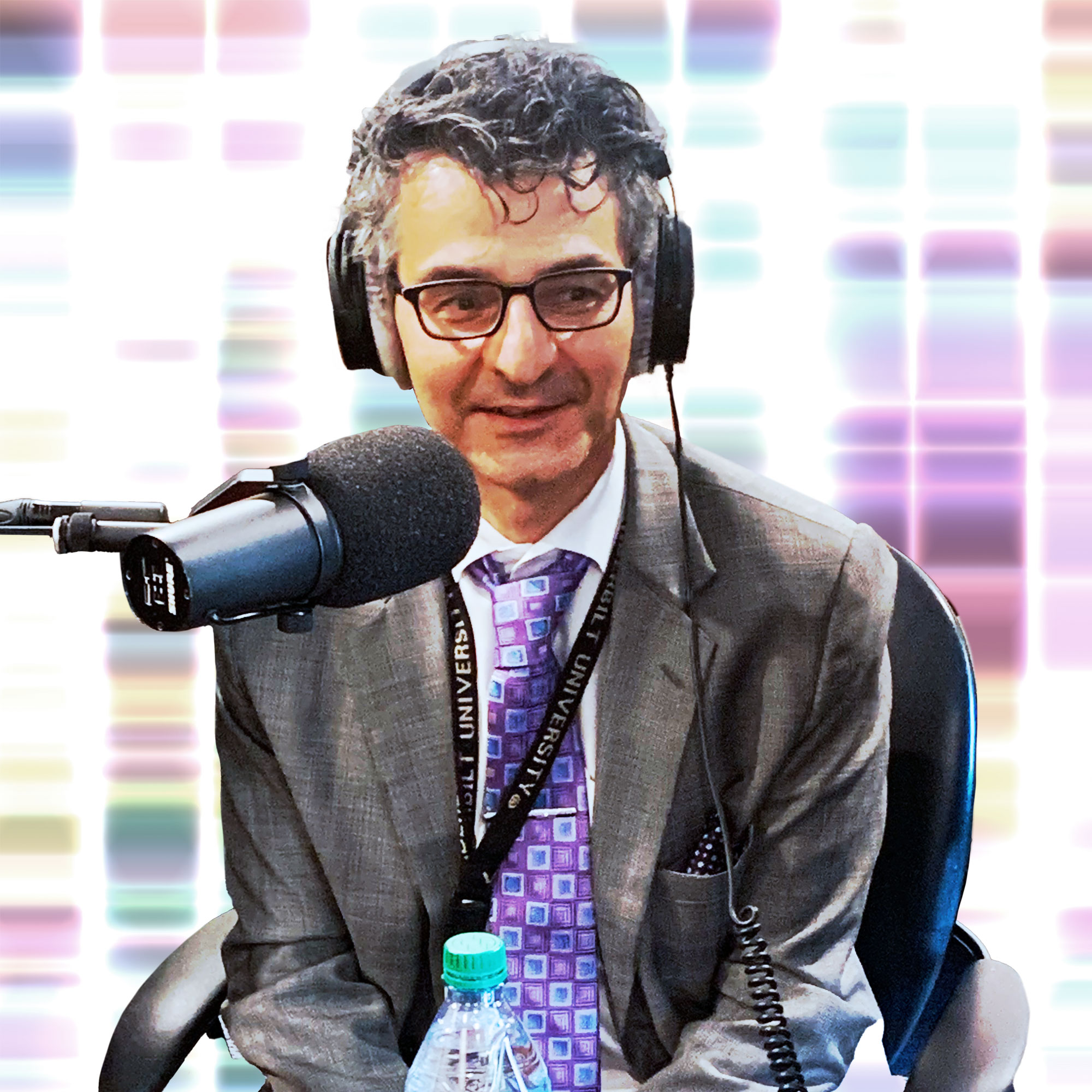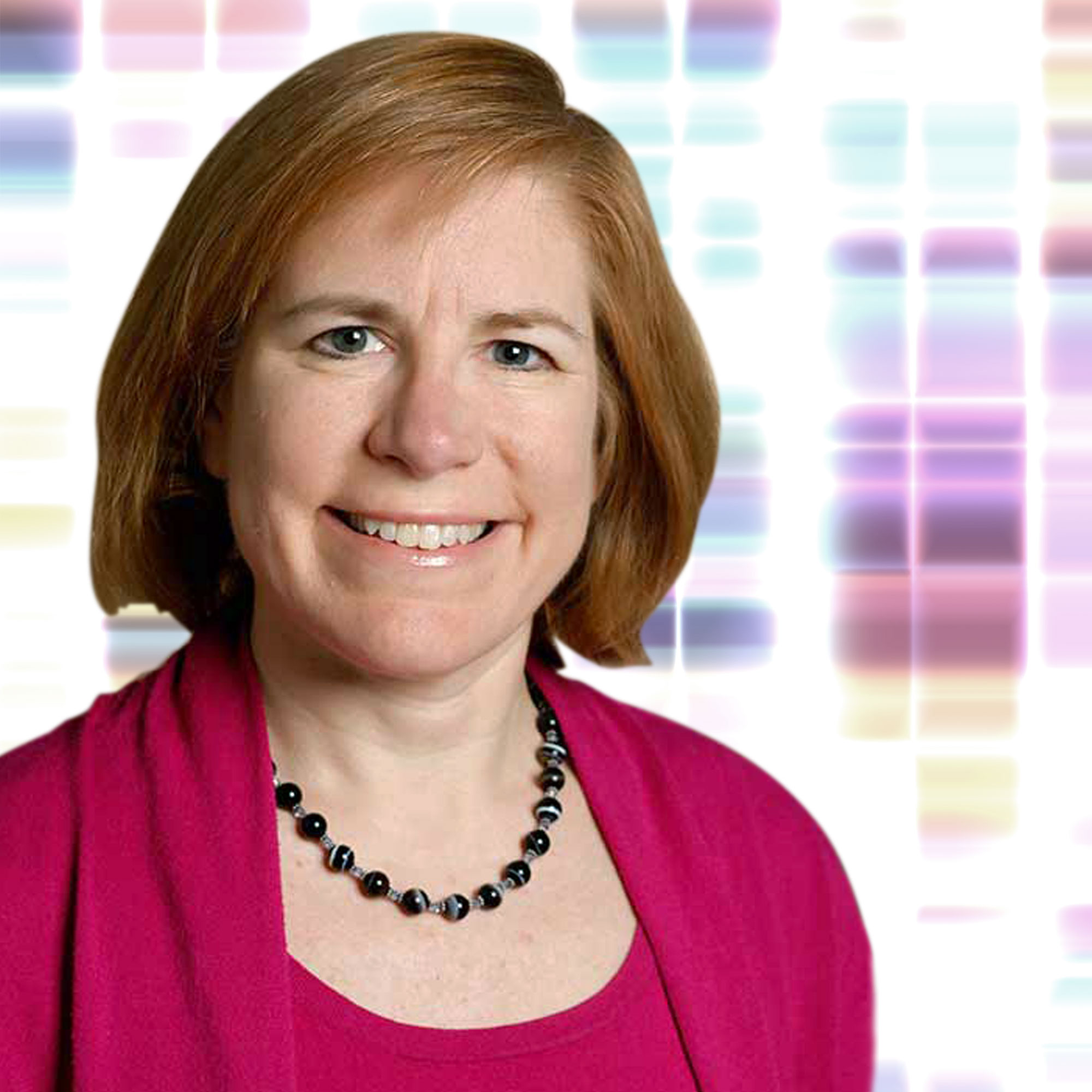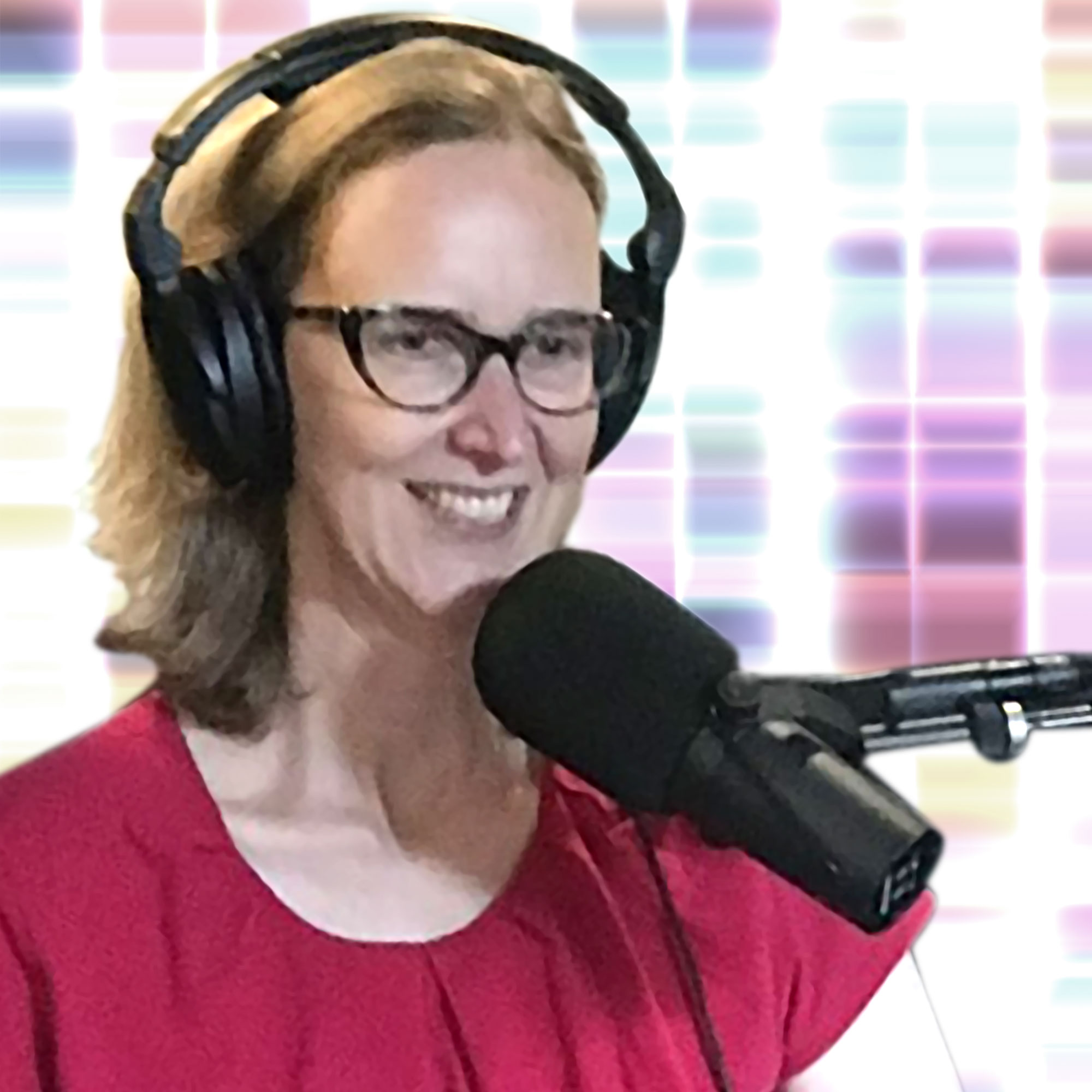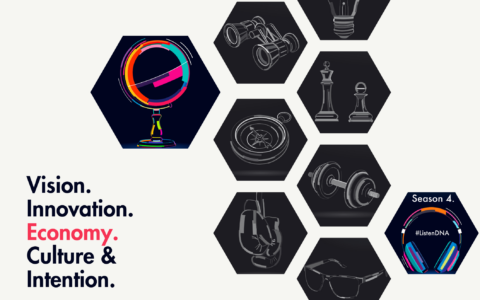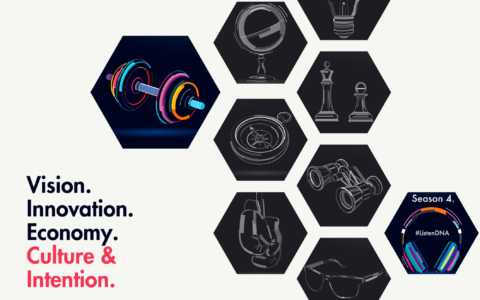If you’re ready to get to get intrepid and get to work infusing climate awareness and action into your personal and professional lives, then this episode’s guests have ideas on where to start.
None of the guests have a climate scientist pedigree, yet are emerging as important figures in their respective field — a reminder that creating systemic change requires everyone to find a way to be a leader. It’s going to take all of us.
Listen to this episode to hear how they worked through questions about whether they had the experience or credibility to speak up (yes!), how they look for small moments to implement change, and how their efforts combined with others snowball into a real impact.
Listen in as these non-climate scientist leaders give hands-on, real world ideas that stem from how they pivoted their focus to take on climate change. Let’s do this!
Dr. Reed Omary, MD, MS, Carol D. and Henry P. Pendergrass Professor and chair of Radiology.
Omary’s focus during the last year is amplifying his mantra that “climate care is health care.” A national leader in his specialty, he’s demonstrating in real-time how an individual can use their associations and networks to start conversations.
He joined DNA on Season 2’s “Climate is Us” episode, and has been on a speaking tour since. He even recently hired a new faculty member who is the vice chair of global and planetary health as a way to establish a connection point and make sure it’s a priority.
“Healthcare, we’re really good as clinicians at peering inside the body and helping individuals. We’re less good and becoming better at trying to navigate societal issues. We have had almost no experience at thinking at a planetary scale. And so it’s going to take a lot of education and time to have our healthcare systems, start recognizing how to do this and in the most impact can be generated,” said Omary.
Borden Lacy, professor in the Department of Pathology, microbiology, and immunology, professor in the Department of Biochemistry at Vanderbilt University, Director of the Center for Structural Biology.
Lacy’s research is focused predominantly on toxins made by infectious bacteria such as clostridium difficile. She’s emerging as a leader in making labs more sustainable, and moderating many discussions on campus as more people look for ways to get involved.
She’s involved with and watching research take new measures as part of the responsible conduct of research, and looking for ways to shift her own research aims.
“I would’ve originally thought that this was a topic for policy experts or technological expert engineers or field ecologists. But increasingly, I think this is really an all, hands on deck emergency. We’ve all got to bring something to the table and no one person is going to have all of that expertise. I’ve just viewed my role as someone who will start asking questions and learning more as I go,” said Lacy.
Beth Malow, professor of neurology and pediatrics, Burry Endowed Chair in Cognitive Childhood Development, and director of the sleep division at VUMC.
Malow’s medical practice and research has refined a certain skill over the years—championing science communication to develop bipartisan support.
“I really have this eclectic hobby of wanting to have challenging conversations with people. I really love it because I love when I talk to people who feel different than me, it opens a lot of doors. It’s very stimulating for me to have those conversations. I learn a lot. It gives me a lot of hope that there’s a lot of good in the world when you can talk to anybody about anything. I would really encourage people to who are at the beginning of their journey talking about climate to really make the conversation relevant and think about, ‘what matters to people,’ said Malow.
TRANSCRIPT: DNA: Discoveries in Action Season 3, Episode 7: “How To… DIY Climate Action”
Dr. Reed Omary: I would take the advice of Nike and say, “Just do it.” It’s something that we all can do, and you don’t need to be a climate scientist to understand how important climate change is.
Dr. Borden Lacy: So I’ve been aware of the fact that maybe not everyone has the same reasons or motivations to make changes, and so I am trying to focus on the things where there would be shared goals and outcomes.
Dr. Beth Ann Mallow: I think one of the things that we need to be better trained in as physicians and researchers and healthcare professionals is in communicating science to the public, which climate change is one of those really challenging areas. It’s really complicated to understand the science and follow all the different assessment reports that are put out.
Clark Buckner: Roll up your sleeves and get ready to get your hands dirty, figuratively of course. It’s DIY day at DNA: about how you – whether you’re a project manager, a teacher, a policy maker, a student, or any kind of doctor – can make climate a priority. Have you ever looked around and marvel at a feature you use or that seems really cool? Like, say, how new iPhones will soon automatically time their ideal charging to use cleaner energy. That’s seemingly a no-brainer thing, right, with all the technology. Someone, somewhere inside Apple thought about that concept, turned it into an idea, and eventually it’s a feature.
Well, that’s how I like to think Apple works. That’s what today is all about. No, not Apple, but how you can be that suggestion maker, that idea haver, and you’ll hear three very smart people tell you step by step how they did it. And trust me, we’re not going to tell you to recycle your peanut butter jars.
I’m your host, Clark Buckner. Discoveries in Action is about the big ideas and breakthroughs happening at Vanderbilt Health. Now, let’s get intrepid.
A year ago, the “Climate is Us” episode went live with Dr. Reed Omary, the chair of radiology, setting his intention of going hard on his mantra, “climate care is healthcare.”
Dr. Reed Omary: It’s beyond our opportunity as physicians, it’s actually our responsibility. We need to care about the health of the public. We need to care about equity. We need to care about the planet, and it’s not just for us right now. It’s for every subsequent generation, our children, our grandchildren, 100 generations from now. This is something that it’s who we are. It comes to our values.
Clark Buckner: Fast forward to now, what’s his take on the pulse of climate awareness in medicine and healthcare?
Dr. Reed Omary: Well, when we first recorded, it seemed very new to many people here. It was very new to many people in healthcare. Over the last 14 months, it’s hard to avoid all the climate news that we’re seeing in our papers, that we’re seeing online, that we’re seeing on TV, that we’re hearing on the phones from our relatives, from our friends elsewhere. It ranges from wildfires to flooding to tornadoes to heat to snow. All of that fits in with climate change. I’ve been on a role in trying to speak to anyone who will listen about the importance of climate change and sustainability and healthcare. As a seasoned academic, I have many connections nationally within the field of radiology and beyond. I was able to use that influence to allow one of our national radiology academic meetings to have the theme of climate change, sustainability and radiology.
To my knowledge and that of Amy Collins from Health Care Without Harm, this was the first national meeting of a medical society that had an entire theme devoted to climate change and sustainability. So we had 1,100 people attend this meeting, most entering without any knowledge about climate change and how it related to either radiology or to healthcare at large. It was amazing to see the energy and the enthusiasm and the realization for how important climate change is to healthcare from that meeting, whether it was from trainees, whether it was from faculty, or whether it was from other chairs who hadn’t recognized how their own values and commitment to climate change on a personal side could also be harnessed on the professional side.
Clark Buckner: Kelsey Barter, a fourth year medical student, talked about how she looks for climate prioritization as she considers where to apply for residency. Head back to the podcast feed to check out “How To… Be a Climate Changemaker.” She’s part of a mindset shift. People increasingly want to know what their organization is doing – a seismic change that makes every job and organization a climate job.
This is personal – so how is Dr. Omary leading and growing around this lodestar?
Dr. Reed Omary: Any organization that doesn’t consider climate change and sustainability will no longer be able to recruit the top talent, and I can speak as a radiology chair. We are recruiting the top talent now, and it’s not just trainees. It’s trainees and faculty, and it’s because climate change affects all of us. If we stick our head in the sand and act like it’s not an issue, or if we think it’s not in our lane, then we’re just not going to recruit the top talent. Over time, it becomes a business decision because even if you are not naturally inclined, you will be at a disadvantage if you don’t consider how important this issue is to our workforce. And it connects directly into all the efforts we’re doing with diversity, equity, and inclusion. Because climate change disproportionally affects those who are marginalized and vulnerable in society, it is an important issue that we need to link to diversity, equity, and inclusion.
We’ve entered an era where leaders from every field, not just a medicine, have found themselves in a position where they are asked to speak out, they are asked their opinions and navigating that of course can be challenging when not everyone in the workforce shares those same opinions. But I would actually think about the values and emphasize the values that we all have in a given organization. Those values in healthcare, of course, is to try and improve the health of all patients that we serve, to care for them in academic medical centers to help teach everyone how to improve therapies and diagnostics, and also to conduct the research. When leaders speak out on something like climate change, climate change is healthcare, and we have to take care of our communities and we have to take care of our planet if we’re going to take care of our patients as individuals.
Clark Buckner: Remember I said you wouldn’t get told to recycle? Well, that’s true. Yet stemming the additional warming takes monumental change in the business world, and it’s up to the people who make up those companies, associations, businesses to move forward, to push. That’s what Dr. Omary emphasizes when he talks to groups and people: how to find ways to establish then amplify the conversation.
Dr. Reed Omary: You don’t need to be a climate scientist to understand how important climate change is. To the best of my knowledge, Al Gore was not a climate scientist yet he was able to win the Nobel Prize because he recognized the importance of climate change and how important it was to link that to many of our policy issues. I think of many ways that the work of scientists over decades is something that we need to consider sacred, and it’s something that is constantly evolving and we need to take that work, which we now know absolutely shows the effect of humans on carbon emissions and greenhouse gasses and global warming, and we need to take that knowledge and convert it into action.
No scientist is going to be able to have the impact and influence that I have with my own friends and colleagues. It’s something that we all have the ability to change the surroundings and those who we interact with. Anyone who cares can and should get involved. And in fact, I don’t think it’s just an opportunity. I think it’s a responsibility for all of us who know better to use our influence for positive change. That’s what leadership is all about.
Clark Buckner: And he’s one of the people shining a light on how a power-guzzling medical specialty can emerge as a leader in making change.
Dr. Reed Omary: Radiology is notorious for using lots of high tech scanners, which are real hungry for power. The use of electricity, of course, converts into greenhouse gas emissions. So without decarbonizing the grid, we need to think of radiology as a major source of emissions. Because radiology is also often a hub for the entire healthcare system, we can use radiology as a test case for how we can think about reducing remissions across our entire healthcare system. As radiologists, we’ve always been comfortable looking at what I would say is the pros and the good and the bad, the benefits and the costs for all of our imaging. I envision a future where we also start measuring the carbon costs for any of our diagnostic imaging procedures. It’s not unlike looking right now when we go to the grocery store and seeing that future because we can start creating that with research right now and that also involves a lot of partnerships with our imaging vendors.
Clark Buckner: And get this! Dr. Omary recently hired a new faculty member who is the vice chair of Global and Planetary Health as a way to establish a connection point and make sure it’s a priority. That’s an unusual title.
Dr. Reed Omary: I think just like healthcare has an obligation to consider the societal impacts of many policies, of many challenges that our patients face. And I think healthcare, we’re really good as clinicians at peering inside the body and helping individuals, we’re less good and becoming better at trying to navigate societal issues. We have had almost no experience at thinking at a planetary scale. It’s going to take a lot of education and time to have our healthcare systems start recognizing how to do this and in what ways that the most impact can be generated.
Clark Buckner: I’m really excited for you to meet the next guests. They were introduced virtually during COVID because of their individual grassroots approach to climate awareness. Sitting down for the interview was supposed to be the first time they met in person, but alas, life happened. We had a fantastic discussion with two of us together in person and the other participating virtually on camera and mic.
They won’t be star crossed climate activists for long, though, eventually their paths will cross.
Dr. Borden Lacy: Hi, my name is Borden Lacy and I’m a professor in the Department of Pathology, Microbiology and Immunology at Vanderbilt Medical Center. I’m also a professor in the Department of Biochemistry at Vanderbilt University, where I direct the Center for Structural Biology. My research is focused predominantly on toxins made by infectious bacteria such as Clostridium difficile.
Dr. Beth Ann Mallow: Hi, my name is Beth Mallow. I am a professor of neurology and pediatrics at Vanderbilt University Medical Center, and I hold the Burry Endowed Chair in Cognitive Childhood Development. And then I also direct the Sleep Division at Vanderbilt Medical Center. And I usually sleep fairly well, but not always.
I think I got progressively concerned about acting on climate when it really hit home with some of these extreme weather events, particularly the extreme heat that we all seemed to experience this summer no matter where we lived. And it really got in the way of my being able to run and take walks. It never seemed to cool down at night. And as a health advocate, as a physician, I realized – I think I heard something on the news about how extreme heat is even more catastrophic or damaging to human health than fires or floods or hurricanes. I mean, I guess the risk of being affected by one of those things is less than the risk of being affected by extreme heat. And as a physician, I felt like it was time for me to say something or do something.
Dr. Borden Lacy: So I was invited to participate in a discussion group over the COVID lockdown, and we started discussing different aspects of climate change, food, transportation, energy. And through this group, I met several other faculty who were physicians here at Vanderbilt who I hadn’t met before. And through that group, I realized that none of us were experts. None of us were trained in this, but if we were going to set a goal of giving a presentation on a certain subject, we could put together a really nice presentation and we all learned a lot. And I also realized that by having these other people interested in the topic that we could perhaps get together and start doing things that would make an influence at work.
Dr. Beth Ann Mallow: Yeah, I mean, I think that climate change is something that as physicians or other healthcare professionals is so in our lane, and I think anybody who sees all that goes on with climate change and its effect on mental health or physical health, as I mentioned with the extreme heat, it’s pretty clear that it is in our lane. So I think sometimes it’s just a matter of speaking up. And I’ve looked into why physicians and other healthcare professionals don’t speak up, and I think it’s the combination of it seems like it’s complicated and I think we always are very careful to not get involved in things that are too complicated. But I think it can be made simpler, especially as physicians, we’re used to making things more bite size, more digestible for our patients. That is something we can do with climate change for sure. The other reason sometimes people don’t speak up is it’s felt to be too politically charged, for example, or too controversial. There are skills that we can learn for how to talk about challenging issues and bridge the divides, so to speak.
Dr. Borden Lacy: I perhaps would’ve originally thought that this was a topic for policy experts or technological experts, engineers or field ecologists. But increasingly, I realized this is really all hands on deck emergency, and we’ve all got to bring something to the table and no one person is going to have all of that expertise, but if you have the willingness to bring it up as a topic and talk about it, that is at least something. And so I’ve just viewed my role as someone who will start asking questions and learning more as I go. It’s pretty eye opening, but that you can go out on a limb and all of a sudden start getting invited to do more of these things. It’s been very exciting for me to get to participate in things I never would’ve gotten to do before. So yeah, I would definitely encourage anyone to follow up on things that are of interest to you and things where you might be able to bring something new to the discussion.
Dr. Beth Ann Mallow: I really have this eclectic hobby of wanting to have challenging conversations with people. I really love it because I love when I talk to people who feel different than me. It opens a lot of doors. It’s very stimulating for me to have those conversations. I learn a lot. It gives me hope, gives me a lot of hope that there’s a lot of good in the world. When you can talk to anybody about anything, I would really encourage people, who are at the beginning of their journey talking about climate, to really make the conversation relevant and think about what matters to people.
Dr. Borden Lacy: So I’ve been aware of the fact that maybe not everyone has the same reasons or motivations to make changes. I am trying to focus on the things where there would be shared goals and outcomes. So for example, a lot of the changes that we can make will also save money. And most people, if you can outline ways where they can save money, whether it be for their research program or institutionally, I think people will see this added benefit where, “Oh, well, I can make this change. It’s good for the environment, and it’s also going to allow me to stretch my budget farther.” That’s how I’ve been focusing is trying to tackle what I would call the easy things first, the things where the shared benefits are really clear.
Clark Buckner: The research world is its own ecosystem, and I was curious about the movements happening there – and how does climate become part of protocol or the criteria. Imagine if more people take that same path as Dr. Lacy and start speaking up, suggesting how to infuse climate best practices into their workflow or even their research hypothesis.
Dr. Borden Lacy: Right now, I think a lot of the activities I see in research are happening at an organic level, but there will be regulated, mandated changes coming. So one thing that is mandated by the NIH is that all of our trainees receive continuous education and the responsible conduct of research, and there are conversations going on about including how to use resources and research sustainably that should now be part of that training. I have been thinking to myself, how important is my research on C. diff going to be if the world is too hot? I mean, if we’re worried about sustaining life on the planet, then I think C. diff is going to be the least of our problems. So I have been thinking, how can I change my research program so that I’m doing something that would be helping? And I’m trying to marry that with my actual skills. So figuring out a way that I can contribute, whether it would be through microbial engineering or something where structural biology can help.
So I am thinking a lot about that. I’m learning a lot about that. I haven’t quite hit on what that will look like, and I would have to build up expertise from scratch in terms of a new field. But in the meantime, I think that there’s this huge impact that you can have on labs in general in terms of what we could do to make our work more sustainable. I think just working on that delta, if you will, that big impact of carbon footprint savings that I see, I think maybe that would be where I could make a difference.
Dr. Beth Ann Mallow: I’ve gotten increasingly interested in the sleep, heat climate connection, being a sleep specialist. We had that Axios article that came out about how extreme heat affects sleep. And the more I think about it and read about it, I become more and more interested in it because I think it’s a great opportunity to educate the public on sleep as well as on climate change. I love, for example, that I can explain that when it’s too hot outside, we’re not able to exercise, and it’s just really important to exercise, to be able to sleep better. And when we don’t sleep, it can affect our emotions, and then we can be even more, unfortunately, more polarized about climate because we’re angry and frustrated and want to lash out and send that nasty email or tweet that we’ll regret later. So I’m really enjoying the ability to connect the dots and to be able to take my expertise in sleep and get involved in a whole new area like climate and extreme heat.
And I do think people listen. And I have nothing against polar bears, but honestly, I worry because the polar bear, from what I’ve read, it’s more dangerous than the grizzly bears and black bears and all, and it just isn’t all that relevant to folks. But if we can focus on things like sleep and exercise and things that really affect people in their lives, people will listen and people will say, “What can I do? How can I make a difference?” And that’s going to be so important, especially as we move from, let’s say, these tax breaks and all with the IRA into something like a carbon tax and a dividend that comes back to the American people, which I hope we’ll follow up on as a country.
That’s where really being able to take personal responsibility and make the right choice. Just like Dr. Lacy said in medicine, we need to make the right choice with sustainability. Well, as Americans, we need to make the right choice about how we use our energy and what we invest in and making sure that we support renewables and that we turn our lights off when we don’t need them. I mean, that’s a whole culture shift that we’re going to have to make. The first step to making that culture shift is to be able to talk about it and to get people excited and to see the relevance in their lives. So that’s one of the things I’m committed to.
Clark Buckner: A lot of young people around the world and in the US have climate guilt or eco anxiety. Doom can seem inescapable, but our guests today don’t have either of those. It ties back to Dr. Barrington Hwang, a psychiatrist on the first episode of this climate chapter. He talked about how hope and hopelessness can sit together at the same time, and how to turn one into motivation.
The day that Patagonia released their new business model that makes Earth the shareholder, I think that was a major zap of energy for some people, a rejuvenation for some, and for others, it sparked a new way of thinking. It did for me.
Dr. Beth Ann Mallow:
I think that there’s so much hope because there’s so much innovation, there’s a lot of opportunity for people to come to together and to create new jobs and create new technologies, to get people to become advocates for health. I just think that we need to focus on hope, resiliency, it’s just super important. And just every time I hear doom and gloom, which I know is realistic, and we can’t ignore that, and I don’t want to be a pollyanna, but I just don’t think that the doom and gloom encourages people in the same way that hope does. So I’m always trying to be the voice of hope whenever I can.
Clark Buckner: If you’re ready to get to it, to get intrepid and get to work, then let our guests give you some ideas on where to start. It’s going to take all of us. And to quote Dr. Omary, “Climate care is healthcare.” This is for the planet, our health, and the health of the future generations.
Dr. Beth Ann Mallow: My call to action is as hard as it may be, talk about it, talk about climate change, and also talk about how it’s bipartisan. That’s a message that a lot of people don’t hear and they need to hear it. Especially in Tennessee, which can be a very red state. It really is bipartisan. Our elected officials, if not focused on climate, they’re focused on advanced energy and job creation and EV plants and all of that, and voted for the Growing Climate Solutions Act in Congress. I just think that it’s really, really important to talk about it because when we talk about something, then it starts getting attention and energy and people will have more hope because they see that it’s something that’s out there that people are rallying around and engaging in.
Dr. Borden Lacy: So I have two suggestions. One kind of general and one very specific. The general one is I think we need to expect more as consumers. One thing that I thought about, as I started thinking about what I could do in a laboratory, is that in contrast to my personal life where maybe I don’t spend that much money, in my lab I spend a lot of money, and I should expect more from these large companies that are providing all these resources that they’re investigating their supply chain and that they’re doing their best to deliver something that is sustainable. The other thing that I would say, if there are scientists listening or people in healthcare, is that if you have a minus 80 freezer, if you turn it to minus 70, you’ll save 40% of the energy, you’ll make your freezer last longer, and there will be no impact on the samples. So minus 70 is the new way to go. It actually is the way we used to run our freezers, and there’s just no reason that we need to keep them at minus 80.
Dr. Beth Ann Mallow: I also wanted to recommend to people, if they’re not sure how to start, join a climate group, and I’m in one called Citizens’ Climate Lobby, but there’s Sierra Club, there’s a whole host of them. They really are great ways to make new friends and rally together with people. There’s nothing more positive than getting together with a group of like-minded people and accomplishing a goal, and it’s something that you don’t have to do on your own. So really think about that. If you need something to energize you, do a web search on climate groups and you’ll be amazed what you can come up with and join one, just check it out.
Dr. Reed Omary: Personally, I am wired for action. I find anxiety for me is something I’m just allergic to. I solve that by rolling up my sleeves and doing. We will be more successful in trying to help the planet the more we can convert anxiety into action.
Clark Buckner: Thank you so much for joining us for our climate change series. If you missed any of the previous three episodes, they’re all in your feed right now. If you missed our live Twitter Spaces chats this week at the AAMC Conference here in Nashville, look for our Producer’s Cut version coming out soon.
And of course, don’t forget follow, rate, and review this show anywhere and everywhere you get your podcasts. Until next time, Vanderbilt Health, making healthcare personal. As a reminder, Vanderbilt Health DNA: Discoveries in Action is an editorialized podcast from Vanderbilt Health that isn’t meant to replace any form of medical advice or treatment. If you have questions about your medical care or health, please consult your physician or care provider.

